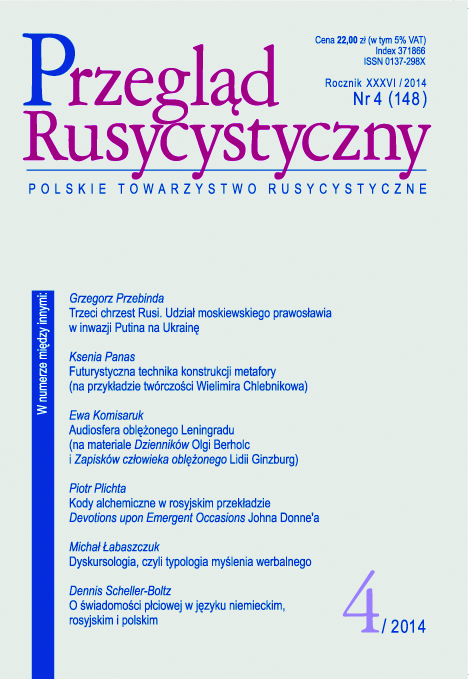On gender awareness in German, Russian, and Polish
On gender awareness in German, Russian, and Polish
Author(s): Dennis Scheller-BoltzSubject(s): Language studies, Language and Literature Studies, Theoretical Linguistics, Morphology, Lexis, Comparative Linguistics, Western Slavic Languages, Eastern Slavic Languages, Philology, Translation Studies
Published by: Polskie Towarzystwo Rusycytyczne
Keywords: translation studies;comparative linguistics; Polish language; German language; Russian language; grammatical gender
Summary/Abstract: The aim of the article is to answer the question concerning grammatical gender and language equivalency in translation. There are various established ways of expressing gender variety in the German language, and even examples of experiments with gender-neutral or non-gender forms. In the Russian language, however, masculine forms are most frequent. In the Polish language one may observe a discussion on the possibility of creating feminine forms, which could replace the masculine ones. The author considers the tendency to use neutral or non-gender noun forms development in the German language and compares them to Polish and Russian. Since the usage of nouns naming persons is usually socially and culturally determined, the author tries to show how translation studies and practice can benefit from such an approach.
Journal: Przegląd Rusycystyczny
- Issue Year: 2014
- Issue No: 148
- Page Range: 80-105
- Page Count: 26
- Language: English

